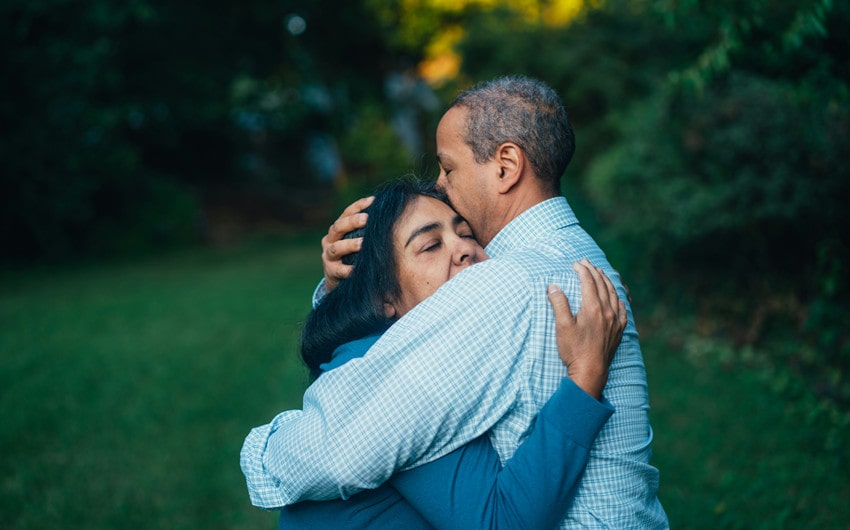How to Have a Healthy Relationship: 8 Steps to Success
Building a healthy relationship takes more than just love—it requires effort, understanding, and a shared commitment to grow together. Knowing how to have a healthy relationship means recognizing the value of trust, open communication, respect for each other’s individuality, and the importance of quality time.
When both partners put in the effort to nurture these qualities, relationships become more resilient and fulfilling. In this article, we’ll explore practical ways to create and maintain a relationship where both people feel valued, supported, and genuinely connected, helping you build a strong foundation for lasting happiness together.
1. Effective Communication

Effective communication is essential to a healthy relationship, allowing partners to express needs, resolve misunderstandings, and build a deep connection. Here are some key elements to foster open, constructive communication:
Active Listening: Listen without interruption or planning a response. Show engagement with eye contact and follow-up questions to make your partner feel heard and valued.
Clear Expression of Needs: Avoid assumptions by clearly stating your feelings and desires. Use “I” statements, such as, “I feel appreciated when…,” to communicate without making your partner defensive.
Empathy and Validation: Practice empathy by seeing situations from your partner’s perspective, and validate their emotions with phrases like, “I understand you feel…”
Avoiding Blame: Focus on issues rather than assigning blame. Replace “You never listen” with “I feel unheard when…” to maintain a constructive tone.
Calm During Conflicts: When disagreements arise, take a moment to calm down before addressing the issue. Staying calm allows for a respectful and productive dialogue.
Regular Check-ins: Set aside time for open conversations, whether weekly or monthly, to ensure both partners feel connected and valued.
2. Building Trust and Transparency
Trust and transparency are vital to creating a safe, supportive environment in a relationship. Without trust, even small misunderstandings can lead to significant conflicts. Here are a few ways to build and maintain trust:
Be Consistent and Reliable: Trust grows when both partners are consistent in their words and actions. Following through on promises, whether small or large, helps reinforce reliability and trust.
Be Honest, Even When It’s Difficult: Honest communication, even about uncomfortable topics, strengthens transparency. It shows respect and a willingness to be vulnerable, which can deepen the connection.
Set and Respect Boundaries: Trust also depends on respecting each other’s boundaries. When both partners honor each other’s needs and limitations, it builds a foundation of mutual respect and trust.
Apologize and Forgive: Mistakes happen, and taking responsibility for them is essential. Apologizing sincerely when necessary and forgiving each other helps maintain trust and avoid resentment.
3. Maintaining Independence and Respecting Boundaries

Healthy relationships thrive when both partners maintain a sense of individuality. Independence helps each person feel fulfilled outside of the relationship, which reduces feelings of dependency or resentment.
Encourage Personal Interests: Supporting each other’s hobbies and personal goals strengthens the bond. Allowing time apart to pursue individual passions can bring fresh energy and new experiences into the relationship.
Set Clear Boundaries: Boundaries are essential for preserving independence and comfort. Communicate personal needs openly, such as time alone or space for self-care, to prevent misunderstandings and foster respect.
Avoid Clinginess or Over-dependency: Healthy relationships respect each person’s autonomy. Avoid excessive dependence on your partner for happiness, and encourage each other to spend time with friends, family, and hobbies independently.
Balance Togetherness and Space: Striking a balance between quality time and personal time can help both partners feel secure and valued without sacrificing individuality.
4. Showing Appreciation and Gratitude
Expressing appreciation and gratitude regularly helps nurture a positive, supportive relationship environment. It reminds each partner that their efforts are noticed and valued, fostering a deeper connection.
Acknowledge Small Gestures: Noticing and appreciating small acts, like making coffee or handling chores, shows that you value each other’s efforts. Small acknowledgments build a habit of gratitude in everyday interactions.
Express Verbal Appreciation: Simple phrases like “Thank you for doing that” or “I appreciate you” go a long way in making your partner feel valued. Saying these things openly reinforces a positive atmosphere.
Practice Thoughtful Gestures: Showing gratitude through actions—whether it’s planning a special date, writing a note, or helping with a task—can speak louder than words. Small, thoughtful gestures reinforce appreciation.
Celebrate Milestones Together: Recognizing birthdays, anniversaries, or achievements together is a meaningful way to express gratitude for each other and the relationship. Celebrating these moments strengthens the bond and highlights mutual appreciation.
5. Emotional Support and Empathy

Being emotionally supportive and empathetic toward each other creates a foundation of trust and understanding in the relationship. Showing empathy helps each partner feel heard and understood, even during challenging times.
Be Present in Difficult Times: Showing up emotionally and physically during tough moments is essential for building support. Listening, holding space, or simply being there without judgment can mean a lot.
Validate Each Other’s Feelings: Acknowledge and respect each other’s emotions, even if you don’t fully agree. Validating with phrases like, “I understand how you feel,” shows empathy and builds trust.
Offer Encouragement and Positivity: Regularly offering words of encouragement, especially when your partner is facing difficulties, helps them feel supported. Simple reassurances like “You’re doing great” or “I believe in you” boost confidence and connection.
Practice Patience and Compassion: When your partner is struggling, practice patience rather than rushing them to feel better. Giving them time to work through their feelings with compassion shows understanding and creates a safe emotional space.
6. Handling Conflicts in a Healthy Way
Conflict is natural in any relationship, but handling disagreements constructively helps prevent resentment and promotes growth. Learning to approach conflicts calmly and respectfully can strengthen the relationship rather than strain it.
Stay Calm and Composed: Approach conflicts with a calm mindset, avoiding heated arguments or raised voices. Taking a few deep breaths before responding can help both partners stay level-headed, fostering a respectful dialogue.
Focus on the Issue, Not the Person: When discussing disagreements, focus on the specific issue rather than making personal attacks. Avoid blaming language, and use “I” statements to express your perspective without putting your partner on the defensive.
Listen Actively and Seek to Understand: Actively listen to your partner’s viewpoint without interrupting or dismissing their concerns. Reflecting back what you’ve heard, such as, “I understand that you feel…,” shows empathy and builds a foundation for compromise.
Be Open to Compromise: Conflict resolution often requires flexibility. Look for solutions that respect both partners’ needs, aiming for a balanced approach rather than “winning” the argument. Compromise reinforces respect and strengthens trust in the relationship.
7. Prioritizing Quality Time Together

Spending intentional, meaningful time together strengthens the bond and helps keep the relationship fresh. Quality time allows couples to connect, share experiences, and build memories that foster a deep sense of closeness.
Create Rituals or Traditions: Having shared rituals, like a weekly movie night or morning coffee together, brings a comforting routine into the relationship. These moments create opportunities for connection and help reinforce your bond.
Try New Experiences Together: Exploring new activities as a couple, like taking a cooking class or going on a weekend trip, helps keep the relationship exciting. New experiences can deepen your connection and build shared memories.
Be Fully Present: Quality time is about being engaged with each other. Put away distractions, like phones or work, to focus entirely on your partner. Being fully present shows that you value the time together, strengthening emotional intimacy.
Plan Regular Date Nights: Whether it’s an evening out or a cozy dinner at home, setting aside time specifically for romance can keep the spark alive. Prioritizing date nights fosters connection and allows you to reconnect on a personal level.
8. Cultivating a Growth Mindset
A growth mindset in relationships means approaching challenges as opportunities to learn and improve together. It encourages adaptability, resilience, and a shared commitment to becoming the best versions of yourselves.
Embrace Change Together: Recognize that change is a natural part of life, and support each other through personal and relationship growth. Being open to change fosters resilience and shows a willingness to adapt together.
Learn from Challenges: Every relationship faces obstacles, but seeing them as learning opportunities helps strengthen the bond. Discuss what you can both take away from challenges, whether it’s better communication or patience, to move forward positively.
Support Each Other’s Personal Goals: Encourage your partner to pursue their individual dreams, whether it’s a career goal, a new hobby, or a personal project. Supporting each other’s growth creates a balanced relationship where both partners feel valued.
Celebrate Progress, Not Just Perfection: Acknowledge and celebrate small steps in each other’s journey. Whether it’s overcoming a personal fear or achieving a new skill, focusing on progress builds motivation and mutual encouragement within the relationship.







